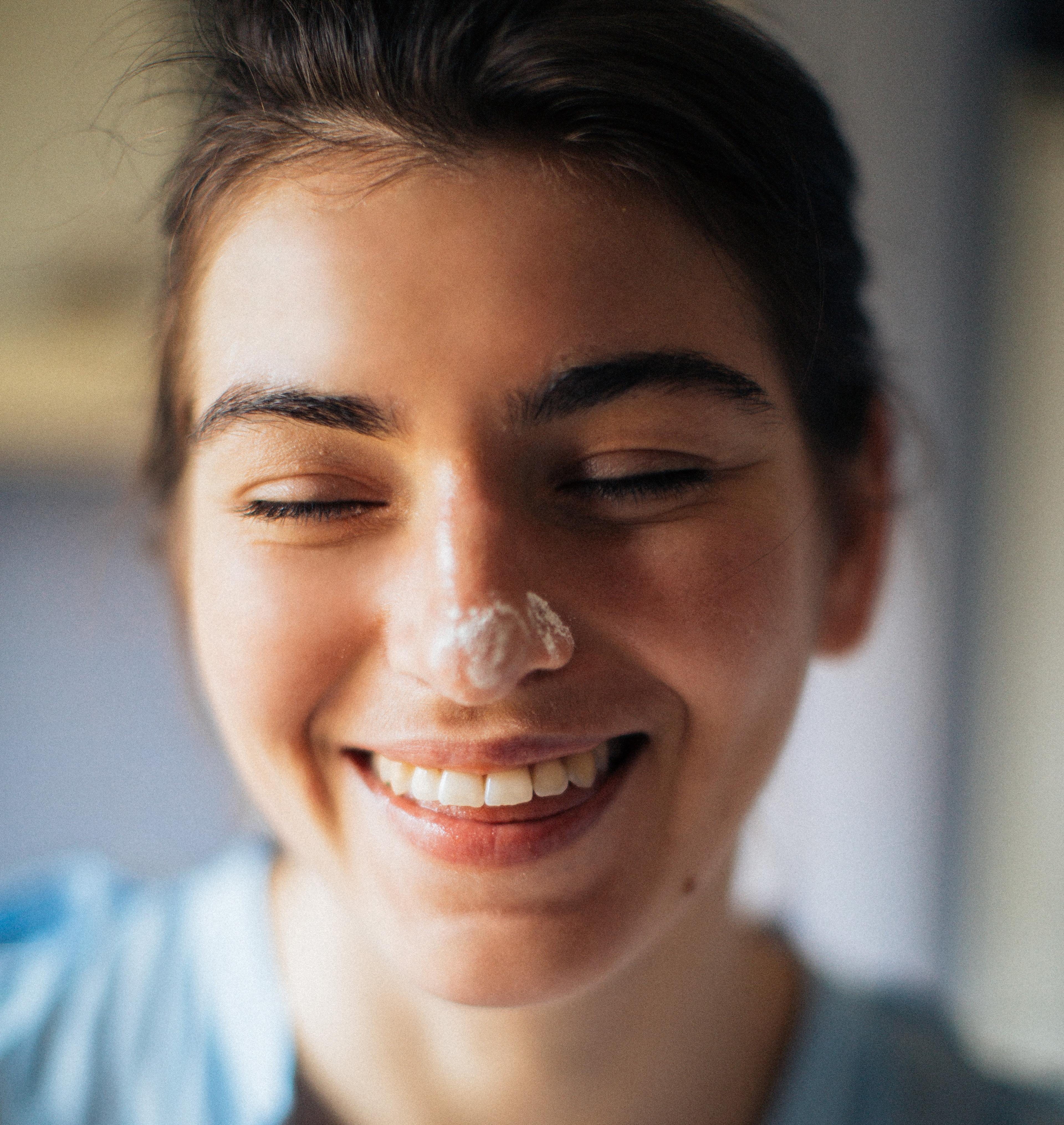Living with sensitive skin and not sure what you should be doing and avoiding? Dr Raquel Amado, owner of Skin and Medical Cosmetics, explains all in this article - from describing what sensitive skin looks and feels like to the ingredients and aesthetic treatments that can help and hinder it.
What is sensitive skin, and how does it feel/show up on the body?
Sensitive skin is a very common condition that’s often associated with a compromised lipid barrier function of the skin, which, in a nutshell, is what protects our body from external factors. Sensitive skin often refers to a skin that easily reacts to chemicals, fragrances, sun and even food like dairy, spice and alcohol. This type of skin is usually characterized by redness, itching, burning, stinging, tightness, and dryness. These symptoms don’t generally all present themselves at the same time, but a person with sensitive skin can often suffer with two or three of them, and this type of skin can easily develop rashes and breakouts.
Who is most likely to suffer with sensitive skin?
Unfortunately, women are more likely to suffer from this condition. Research shows that women have, in general, a thinner epidermis and that could be the reason we are more susceptible to sensitive skin. Having very light skin can sometimes be a cause, as can triggers like the menstrual cycle, weather conditions, air conditioning, cleaning products, personal care products and clothing. We don’t know for sure though whether skin disorders like rosacea, psoriasis, dermatitis, and eczema are underlying conditions for sensitive skin.
What ingredients should I avoid if I have sensitive skin?
If you suffer with sensitive skin, there are several things you should steer clear of, as they can cause further irritation. These are...
- Fragrance/ perfumes
- Chemical sunscreens
- Harsh exfoliants
- Sulphates
- Alcohol
I have sensitive skin. What ingredients/products should I include in my skincare routine?
With sensitive skin, I find that it’s more about the ingredients you shouldn’t use. However, ingredients like sunflower seed oil, aloe, niacinamide and hinokitiol are all soothing agents that help to repair the lipid barrier function and are a good addition to a sensitive skincare regime. But, like with anything skin related, there is no one size fits all approach when it comes to sensitive skin. The best thing is to seek a professional opinion.
Are there any aesthetic treatments that work well to improve sensitive skin?
When it comes to sensitive skin, practitioners have to be very careful. My priority would be to restore the barrier function and make the skin healthy with medical grade skincare. Only after this would I consider any aesthetic treatment like chemical peels and microneedling.
Huge thanks to Dr Raquel for writing this article. For more information on treating sensitive skin, reach out to one of the hundreds of medically qualified aesthetic practitioners on Glowday, or check out our Online Skin Consultations page.

